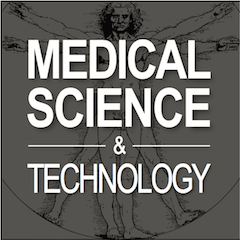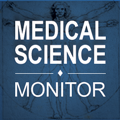Get your full text copy in PDF
Marcin Barylski, Magdalena Charłusz, Lucjan Pawlicki, Jan Kowalski, Robert Irzmański
Med Sci Tech 2011; 52(3-4): RA119-123
ID: 882242
Background: Epidemiological studies have confirmed that heart rate is an independent risk factor of death caused by cardiovascular disease both in the general population as well as in patients with cardiovascular diseases such as hypertension, ischaemic heart disease, heart failure, myocardial infarction and left ventricle dysfunction. We decided to start our own studies to evaluate heart rate (HR) in patients with MS (metabolic syndrome).
Material/Methods: The first group included 100 patients, untreated, 42 women and 58 men, aged 18–65 yrs (avg. 50.94±10.83 yrs) with metabolic syndrome diagnosed according to NCEP/ATP III criteria, hospitalized at the Clinic of Internal Diseases and Cardiological Rehabilitation, WAM University Hospital in Lodz. The second group included 50 patients, 24 women and 26 men (avg. age 54.24±9.84 yrs). In all patients heart rate and pulse pressure (PP) were measured. HR was measured after 10 minutes rest, in a room with air temperature about 20°C. Measurements were done 3 times at 5-minute intervals. Pulse pressure (PP) was measured under the same conditions.
Results: There was positive correlation between HR and systolic blood pressure in patients with MS. There was no correlation between HR and the others risk factors of MS. There was a positive correlation between HR and PP in patients with MS.
Conclusions: Patients with MS have higher risk of cardiovascular complications. The positive correlation between increased heart rate and systolic blood pressure or pulse pressure in patients with MS may intensify metabolic disorders, which increases risk of acute cardiovascular episodes and death.
Keywords: Heart Rate, pulse pressure, metabolic syndrome



